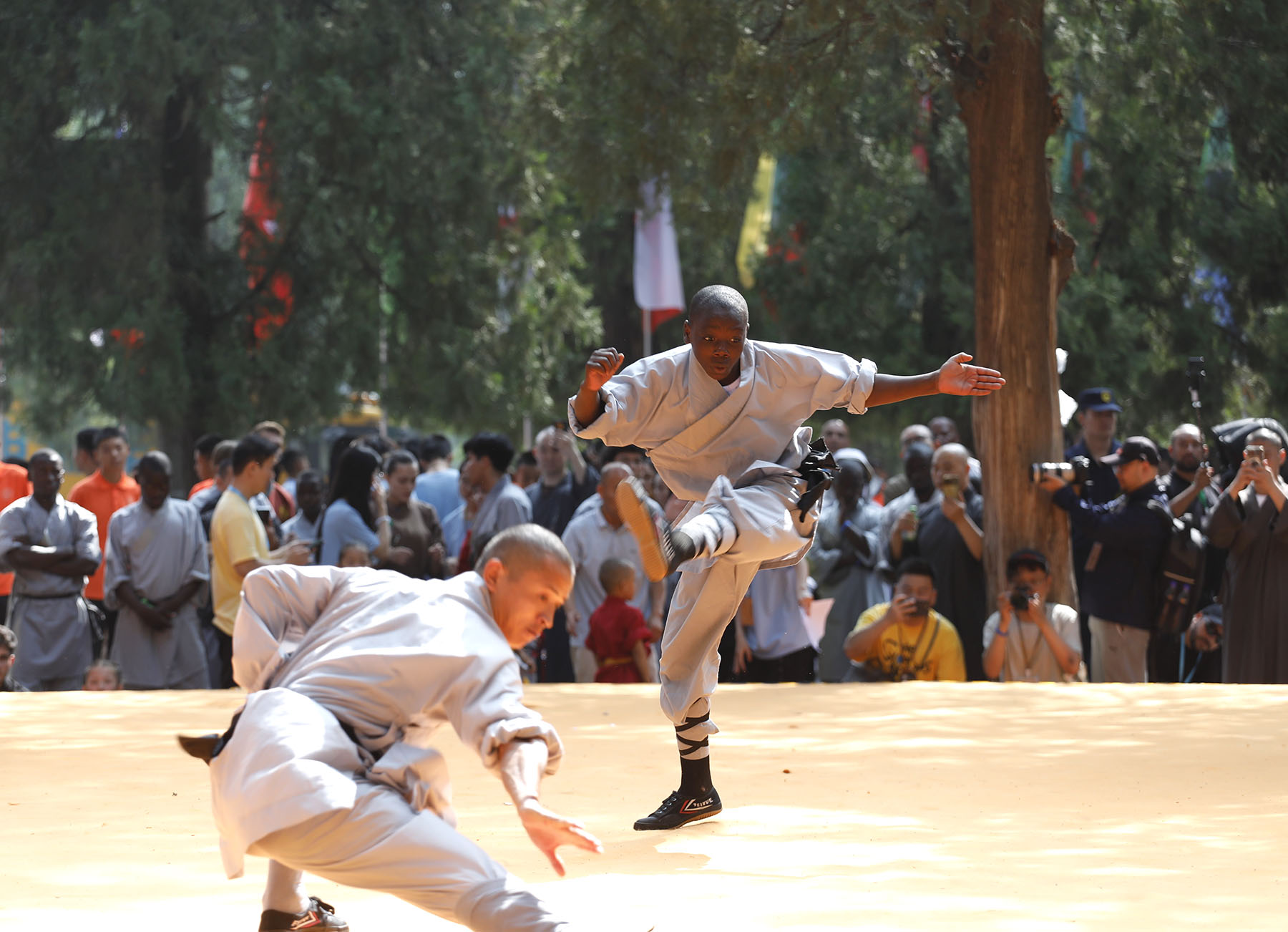124 martial artists from 47 countries and regions compete in Shaolin finals

The 2024 Shaolin Games Finals concluded Sunday, with those who placed in the top 10 earning the title of "Shaolin kung fu star" after a two-day competition at the historic Shaolin Temple in Henan province.
The finals culminated a yearlong competitive process that saw over 20,000 Shaolin kung fu practitioners from 101 countries and regions vying for a spot in the event. From that pool, 2,400 contestants advanced to intercontinental events, with 124 ultimately emerging from 47 countries and regions to compete at the finals alongside 20 Chinese Shaolin kung fu masters in Dengfeng, Henan, according to the Shaolin Temple, which organized the event.
Two of the top 10 winners were from the Chinese mainland; one was from the Macao; two hailed from Australia; and there was one winner each from the Czech Republic, Austria, the United States, Peru and Zambia.
READ MORE: Shaolin pivots to a future beyond kung fu
Korenc Karel, the 18-year-old Czech winner, said placing in the top 10 was a testament to her years of dedication to the martial art.
"I have been practicing kung fu for 12 years. I started when I was 6, and it's like I've been doing it almost my whole life," she said.
With a history spanning over 1,500 years, Shaolin kung fu is a world-renowned symbol of Chinese culture and was listed as a national intangible cultural heritage in 2006.
Shi Yongxin, the venerable abbot of Shaolin Temple, emphasized the role of the finals in fostering cultural exchange.
"The competition brings together individuals from diverse countries and backgrounds, united by their shared passion for Shaolin kung fu and its spirit," Shi said.
Beyond demonstrating martial arts skills, the competition aimed to deepen understanding and appreciation of Shaolin culture, a philosophy rooted in health and well-being.
"Shaolin culture promotes a healthy lifestyle, equipping us to navigate life's challenges while maintaining physical and mental balance," Shi explained during the opening ceremony.
"International exchanges through Shaolin culture can foster understanding and friendship between cultures, ultimately promoting world peace and harmony."
The competition attracted international participants such as 32-year-old Italian contestant Markus Hanisch, who performed Shaolin six-round boxing during the finals. Inspired by a Shaolin monk performance as a child, Hanisch became a kung fu teacher in Italy after winning a gold medal in a national competition.
"The Shaolin Games play a vital role in bridging cultures and fostering connections between countries," Hanisch said.
Wara Lucero, a competitor from Bolivia, highlighted the personal growth fostered by Shaolin kung fu training.
"My father always says the greatest warrior is the one who overcomes challenges, even in sickness, fatigue or pain," she said.
The 18-year-old also impressed audiences at the 9th World Kung Fu Championships in Emeishan, Sichuan province, last year.
ALSO READ: Putin says he knows quite a bit about Chinese martial arts
Liu Genming, a teacher at the Shaolin Temple Culture Center in Texas, the United States, brought three students who all placed in the top 20 among the 124 contestants.
Born in Shangqiu, Henan, Liu grew up training at a kung fu school. Witnessing interest in the Shaolin variety in Texas while touring the US with Shaolin monks when he was 19, Liu decided to join the Shaolin Temple Culture Center and further promote the martial art.
"Through kung fu, the US people gain a deeper understanding of traditional Chinese culture in its various aspects," Liu said. "In turn, this helps spread Shaolin culture to a wider audience."
Contact the writers at zhaoyimeng@chinadaily.com.cn


